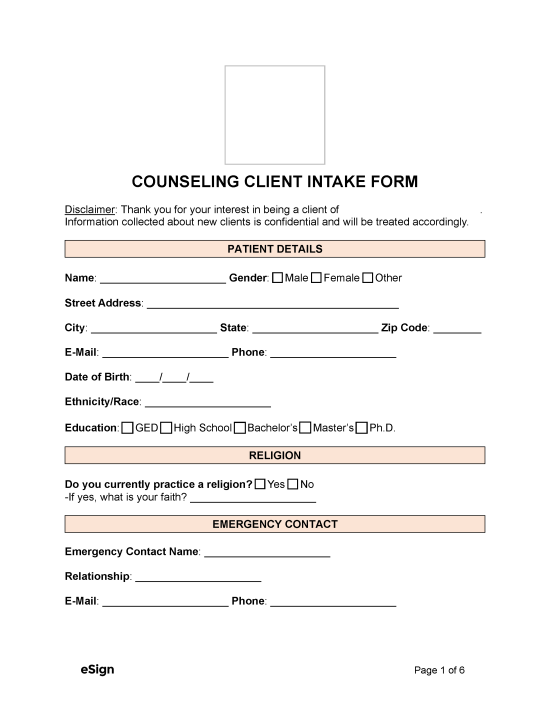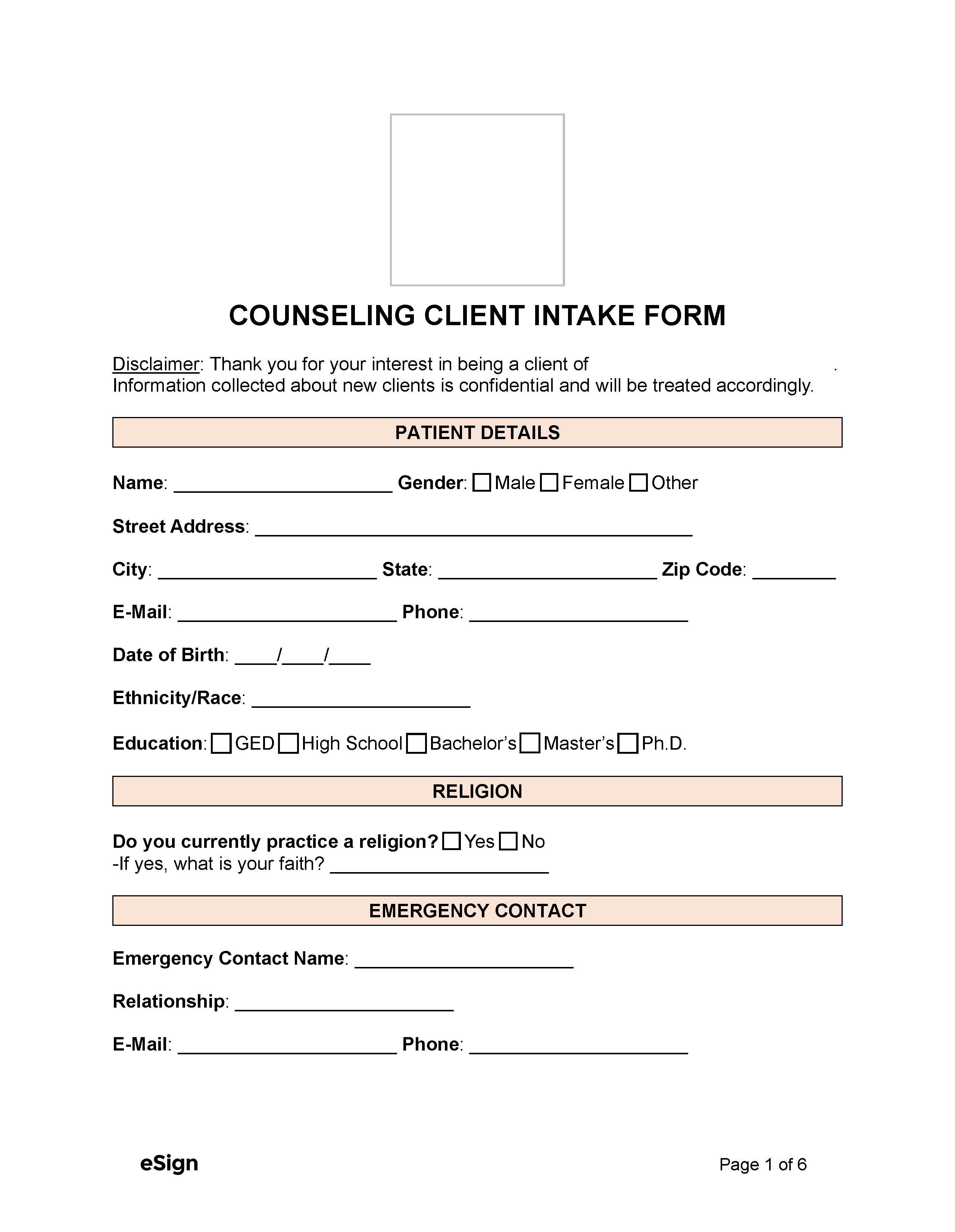Confidentiality
A counselor is obligated to maintain client confidentiality regarding any personal or medical information shared through an intake form.
There are a number of exceptions established by the HIPAA Privacy Rule that allow the disclosure of information without consent (e.g., being a threat to themselves or others, child abuse/neglect, criminal investigations).[1]
Important Sections
Personal Information
The form should ask for the client’s name, address, contact info, emergency contact info, date of birth, educational background, religious beliefs, relationship status, and current employment situation.
Medical History
A client’s medical history is an essential part of the form as it allows the counselor to assess the client’s current physical and mental state before the first session. Furthermore, if the client is using medication, the counselor may need to adjust the treatment options to avoid contraindications.
Alcohol & Drug Use
Understanding the severity of a client’s substance abuse will help the counselor determine what sort of care and treatment the client will need. While a counselor isn’t trained to treat the client medically, it’s helpful to have a full understanding of their current state.
Personal Issues
The counselor should be aware of the client’s main issues and concerns, which will make the initial counseling sessions more productive and likely to result in the most appropriate solution or treatment.
Family Concerns
Any family concerns the client has, such as death, divorce, abuse, financial problems, etc., should be provided on the form to give the counselor the full picture of the client’s life and their issues.

